39 montgomery bus boycott
Montgomery Bus Boycott | The Martin Luther King, Jr ... Montgomery bus boycott begins In the morning, King watches empty buses pass by his home, indicating a successful first day of the boycott. Share this article on Facebook Share this article on Twitter Read more Family friends fail to dissuade King from returning to Montgomery The Bus Boycott | Explore | Rosa Parks: In Her Own Words ... To coincide with her trial on December 5, 1955, the Women's Political Council initiated a one-day citywide bus boycott. That evening, E. D. Nixon and other black leaders called a mass meeting at Holt Street Baptist Church and voted to extend the bus boycott under the direction of the newly formed Montgomery Improvement Association (MIA).
Montgomery bus boycott Facts | Britannica Montgomery bus boycott, mass protest against the bus system of Montgomery, Alabama, by civil rights activists and their supporters that led to a 1956 U.S. Supreme Court decision declaring that Montgomery's segregation laws on buses were unconstitutional. The boycott was led by the Reverend Martin Luther King, Jr.
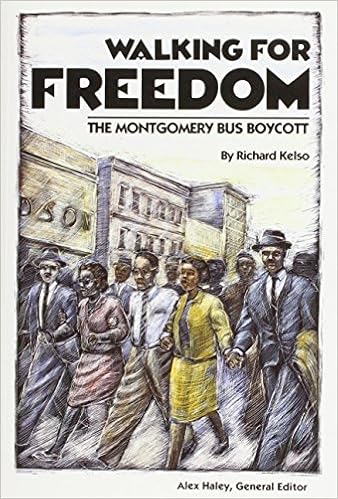
Montgomery bus boycott
Montgomery Bus Boycott: Definition, Summary, Facts ... The Montgomery bus boycott began when Rosa Parks refused to give up her seat on a segregated bus. The fight to desegregate the Montgomery busses continued all the way to the United States Supreme ... Montgomery Bus Boycott Timeline - ThoughtCo The WPC launches a one-day bus boycott on December 2. Robinson also creates and distributes flyers throughout Montgomery's African-American community concerning Parks' case and a call to action: boycott the bus system of December 5. On December 5, the boycott was held and almost all members of Montgomery's African-American community participate. Montgomery bus boycott - Wikipedia The Montgomery bus boycott was a political and social protest campaign against the policy of racial segregation on the public transit system of Montgomery, Alabama.It was a foundational event in the civil rights movement in the United States. The campaign lasted from December 5, 1955—the Monday after Rosa Parks, an African-American woman, was arrested for her refusal to surrender her seat to ...
Montgomery bus boycott. Montgomery Bus Boycott - Africana Online The Montgomery Bus Boycott a year-long protest in Montgomery, Alabama, that galvanized the American Civil Rights Movement and led to a 1956 decision by the Supreme Court of the United States declaring segregated seating on buses unconstitutional. Montgomery Bus Boycott (1955-56) - BlackPast.org The Montgomery Bus Boycott in Montgomery, Alabama was a crucial event in the 20th Century Civil Rights Movement. On the evening of December 1, 1955 Rosa Parks, a Montgomery seamstress on her way home from work, refused to give up her seat on the bus for a white man and was subsequently arrested. The Montgomery bus boycott and the women who made it ... Today's episode, originally released in February 2020, is about how the 1955-56 bus boycott in Montgomery, Alabama, which lasted for more than a year, was led by a group of Black women activists working behind the scenes: the Women's Political Council. Civil Rights for Kids: Montgomery Bus Boycott The Montgomery Bus Boycott was one of the major events in the Civil Rights Movement in the United States. It signaled that a peaceful protest could result in the changing of laws to protect the equal rights of all people regardless of race. Before the Boycott. Before 1955, segregation between the races was common in the south.
Montgomery Bus Boycott Facts for Kids - History for Kids The Montgomery bus boycott was the start of the modern Civil Rights Movement. Martin Luther King Jr. became well-known and a leader thanks to it. Montgomery became an example for other cities. Birmingham, Selma, and Memphis all had people who did what Dr. King did in Montgomery. The bus boycott was good for changing the laws that were not fair. The Messed Up Truth About The Montgomery Bus Boycott The Montgomery bus boycott is often hailed as the opening act of the civil rights movement of the 1960s. It brought national and international attention to the racism institutionalized in Southern life for the first time in decades, created a playbook for peaceful protest, and introduced the world to Dr. Martin Luther King, Jr. Montgomery Bus Boycott | Encyclopedia of Alabama In June 1956, halfway through the boycott, the federal court in Montgomery ruled in Browder v. Gayle that Alabama's bus segregation laws, both city and state, violated the Fourteenth Amendment and were thus unconstitutional. The U.S. Supreme Court upheld that decision in November, and MIA members voted to end the boycott. Montgomery Bus Boycott | Stanford History Education Group Montgomery Bus Boycott The Montgomery Bus Boycott was one of the first successful mass actions of the African-American Civil Rights Movement. The boycott is often understood in overly-simplified terms - the result of Rosa Parks refusing to give up her seat.
Montgomery Bus Boycott - African American Civil Rights ... The Montgomery Bus Boycott was a protest in which African Americans refused to ride buses due to segregated seating in public transportation. It took place from December 5, 1955 to December 20, 1956 in Montgomery, the capital of Alabama. The Montgomery Bus Boycott - Pieces of History Nov 30, 2015 · African-American citizens made up a full three-quarters of regular bus riders, causing the boycott to have a strong economic impact on the public transportation system and on the city of Montgomery as a whole. The boycott was proving to be a successful means of protest. Montgomery Bus Boycott - Spartacus Educational Montgomery Bus Boycott. In the 1950s the National Association for the Advancement of Coloured People was involved in the struggle to end segregation on buses and trains. In 1952 segregation on inter-state railways was declared unconstitutional by the Supreme Court. This was followed in 1954 by a similar judgment concerning interstate buses. Montgomery Bus Boycott | The Martin Luther King, Jr ... Sparked by the arrest of Rosa Parks on 1 December 1955, the Montgomery bus boycott was a 13-month mass protest that ended with the U.S. Supreme Court ruling that segregation on public buses is unconstitutional. The Montgomery Improvement Association (MIA) coordinated the boycott, and its president, Martin Luther King, Jr., became a prominent civil rights leader as international attention focused on Montgomery. The bus boycott demonstrated the potential for nonviolent mass protest to successfully challenge racial segregation and served as an example for other southern campaigns that followed. In Stride Toward Freedom, Kings 1958 memoir of the boycott, he declared the real meaning of the Montgomery bus boycott to be the power of a growing self-respect to animate the struggle for civil rights.
Montgomery Bus Boycott - Black Art Story The Montgomery Bus Boycott was a civil rights protest during which African Americans refused to ride city buses in Montgomery, Alabama, to protest segregated seating. The boycott took place from December 5, 1955, to December 20, 1956, and is regarded as the first large-scale U.S. demonstration against segregation.
Montgomery Bus Boycott: What Happened and When Was It? The Montgomery bus boycott is often credited as the first major action to mark the beginning of the civil rights movement. Thanks to a surprise discovery in 2018, we know that the boycott was also...
Montgomery Bus Boycott - Facts, Significance & Rosa Parks ... The Montgomery Bus Boycott was a civil rights protest during which African Americans refused to ride city buses in Montgomery, Alabama, to protest segregated seating. The boycott took place from...
Montgomery Bus Boycott | National Women's History Museum Montgomery Bus Boycott Claudette Colvin at age 13, April 20, 1953. Credit Wikimedia Commons Claudette Colvin In 1955, Claudette Colvin, a high school student in Montgomery, Alabama boarded the city bus. Her ride went without incident, until she was asked to move to the back of the bus and give her seat to a white passenger.
Montgomery bus boycott | Summary & Martin Luther King, Jr ... Montgomery bus boycott, mass protest against the bus system of Montgomery, Alabama, by civil rights activists and their supporters that led to a 1956 U.S. Supreme Court decision declaring that Montgomery's segregation laws on buses were unconstitutional.
The Montgomery Bus Boycott (article) - Khan Academy Rosa Parks's arrest sparked the Montgomery Bus Boycott, during which the black citizens of Montgomery refused to ride the city's buses in protest over the bus system's policy of racial segregation. It was the first mass-action of the modern civil rights era, and served as an inspiration to other civil rights activists across the nation.
The Montgomery Bus Boycott The Montgomery Bus Boycott. Aurelia S. Browder, et al. v. W.A. Gayle, et al. was the landmark court case that accompanied the Montgomery Bus Boycott and led to the Supreme Court decision declaring segregated buses to be unconstitutional. Although not a listed plaintiff, Rosa Parks' police report, fingerprints, and bus diagram were exhibits in ...
The Montgomery Bus Boycott (U.S. National Park Service) Montgomery City Lines lost between 30,000 and 40,000 bus fares each day during the boycott. The bus company that operated the city busing had suffered financially from the seven month long boycott and the city became desperate to end the boycott. Local police began to harass King and other MIA leaders.
PDF Title of Lesson: Montgomery Bus Boycott : We Would Rather ... Title of Lesson: Montgomery Bus Boycott : We Would Rather Walk! Suggested grade level: 6 . This lesson was created as a part of the Alabama History Education Initiative, funded by a generous grant from the Malone Family Foundation in 2009.
Montgomery Bus Boycott legal definition of Montgomery Bus ... Montgomery Bus Boycott The Montgomery bus boycott was a mass protest by African American citizens in the city of Montgomery, Alabama, against Segregation policies on the city's public buses. It was nine years before the Civil Rights Act of 1964 would change the nation forever.
What was the outcome of Montgomery bus boycott? - Colors ... The Montgomery Bus Boycott was one of the major events in the Civil Rights Movement in the United States. It signaled that a peaceful protest could result in the changing of laws to protect the equal rights of all people regardless of race. Before 1955, segregation between the races was common in the south.
Montgomery bus boycott - Wikipedia The Montgomery bus boycott was a political and social protest campaign against the policy of racial segregation on the public transit system of Montgomery, Alabama.It was a foundational event in the civil rights movement in the United States. The campaign lasted from December 5, 1955—the Monday after Rosa Parks, an African-American woman, was arrested for her refusal to surrender her seat to ...
Montgomery Bus Boycott Timeline - ThoughtCo The WPC launches a one-day bus boycott on December 2. Robinson also creates and distributes flyers throughout Montgomery's African-American community concerning Parks' case and a call to action: boycott the bus system of December 5. On December 5, the boycott was held and almost all members of Montgomery's African-American community participate.
Montgomery Bus Boycott: Definition, Summary, Facts ... The Montgomery bus boycott began when Rosa Parks refused to give up her seat on a segregated bus. The fight to desegregate the Montgomery busses continued all the way to the United States Supreme ...






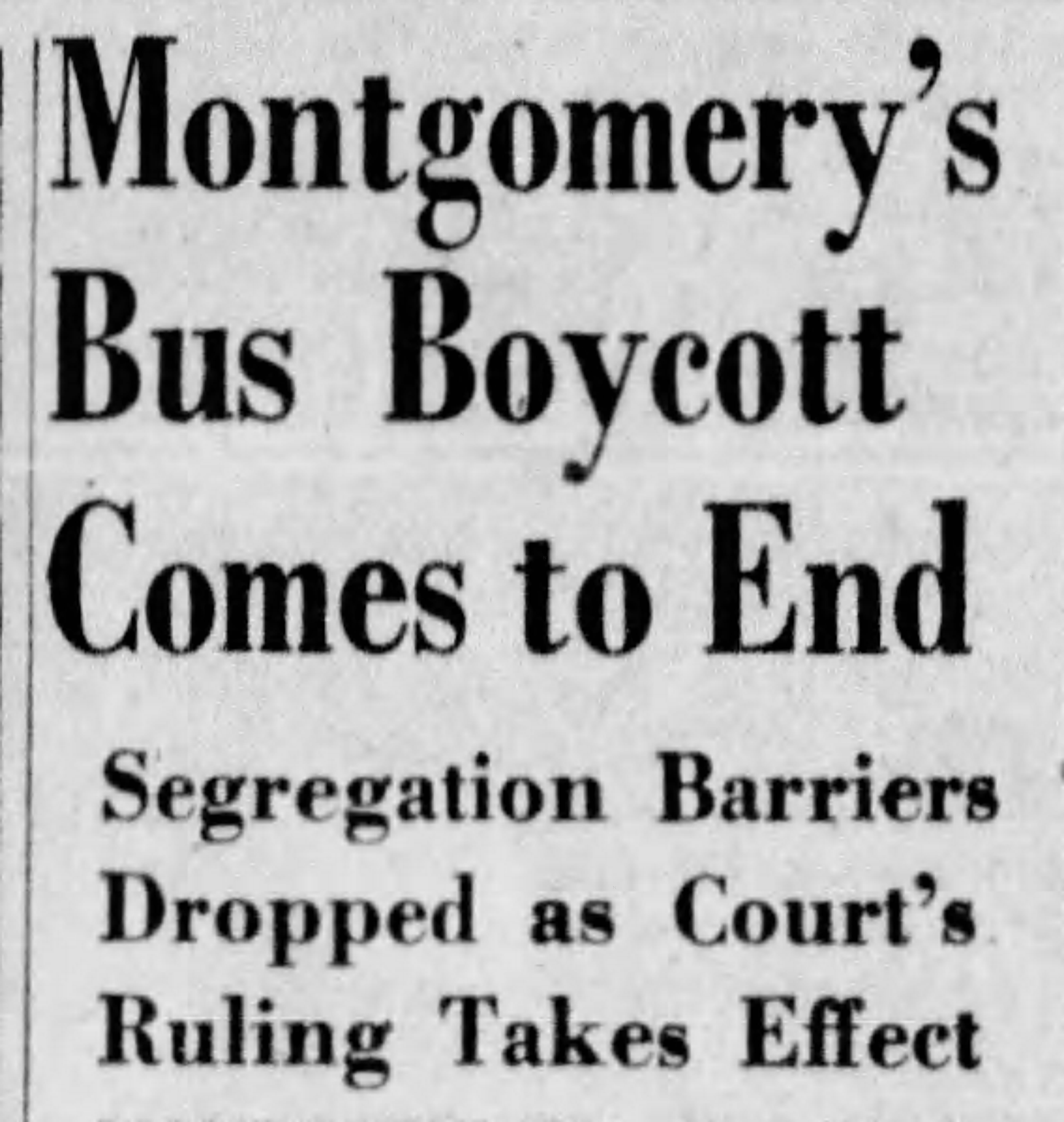

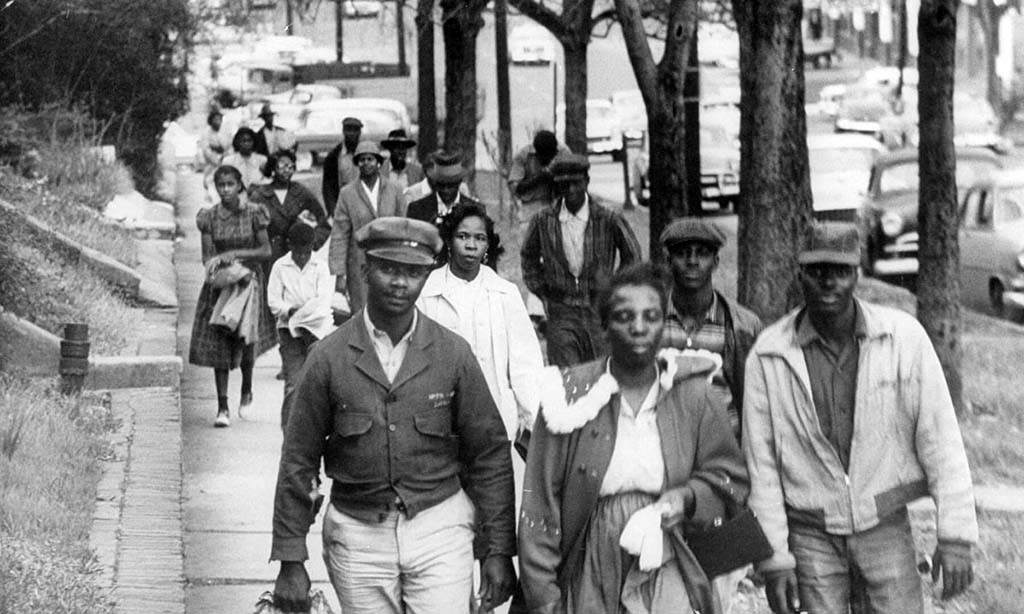

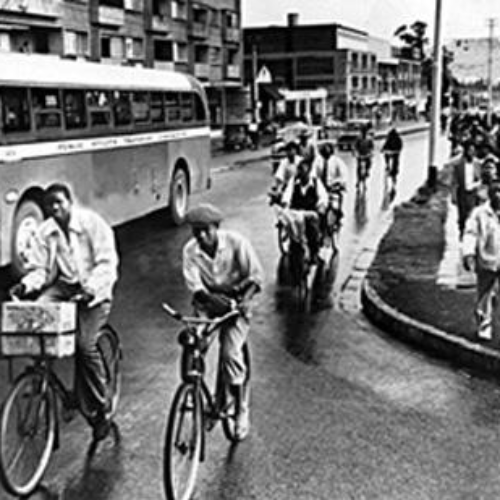
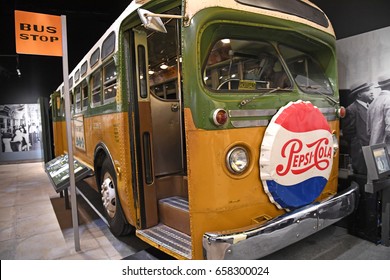




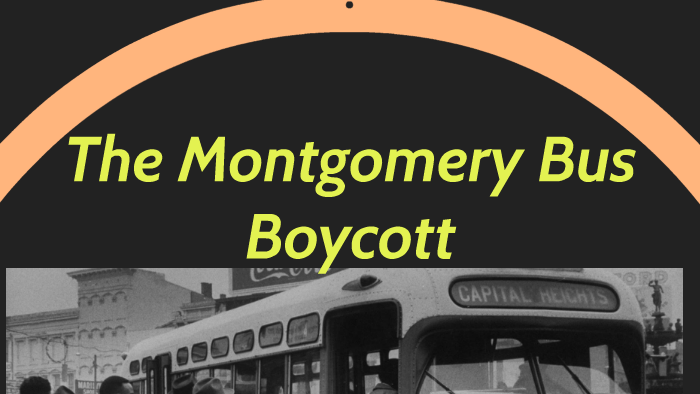
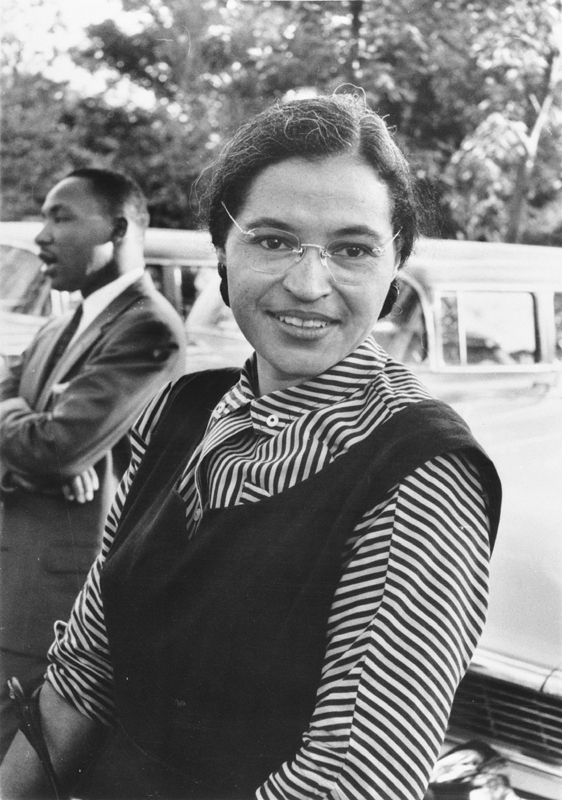

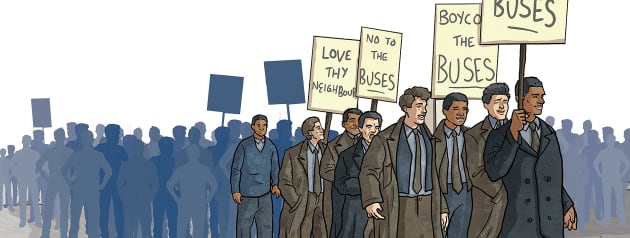
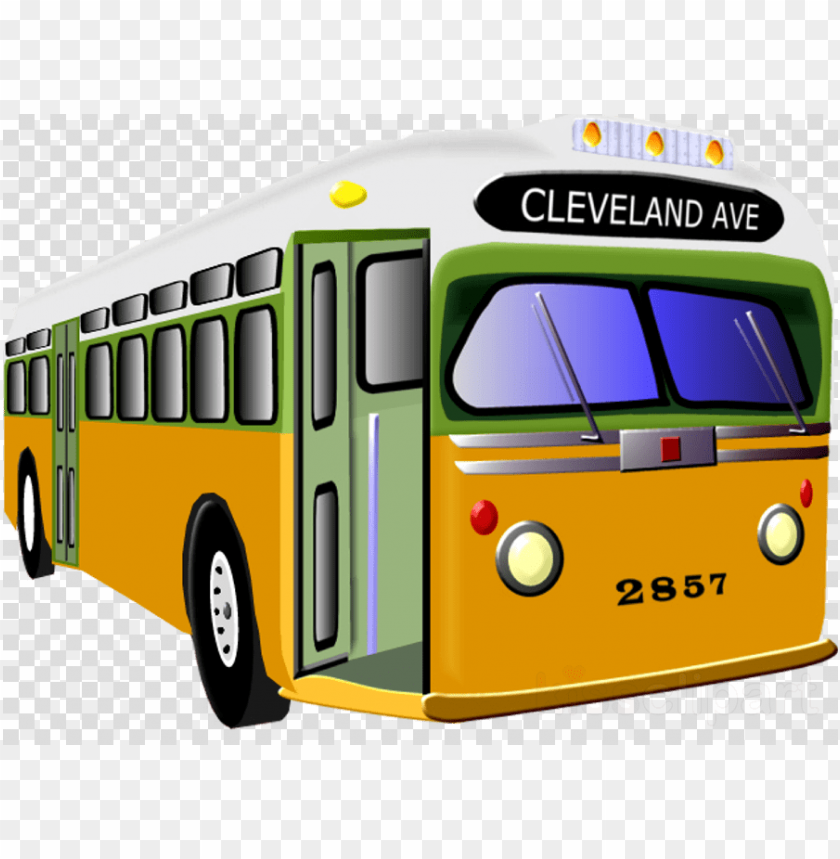






/cloudfront-us-east-1.images.arcpublishing.com/gray/NCRKUQWF4NEBRPMTLHY3CKJ6WI.jpg)


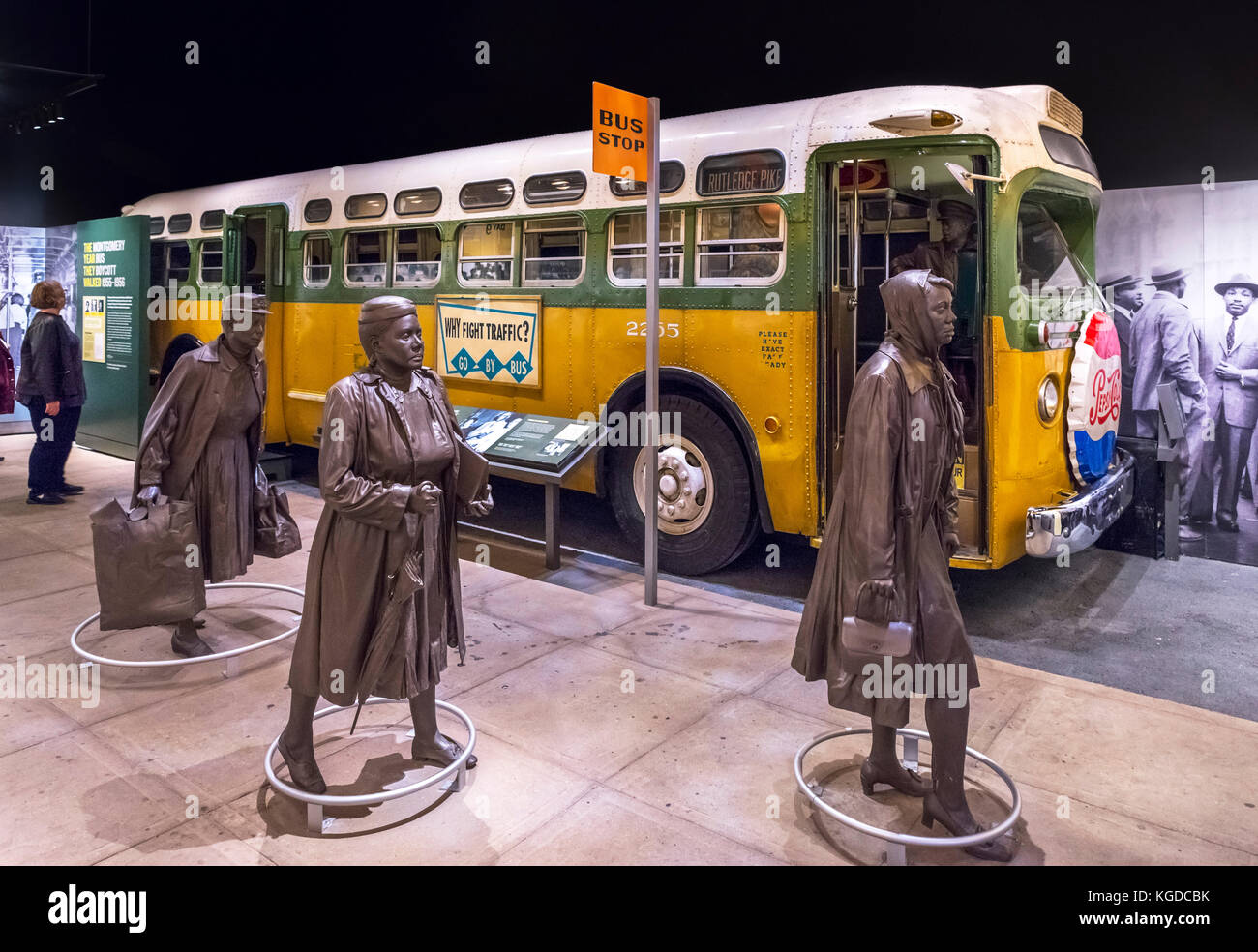
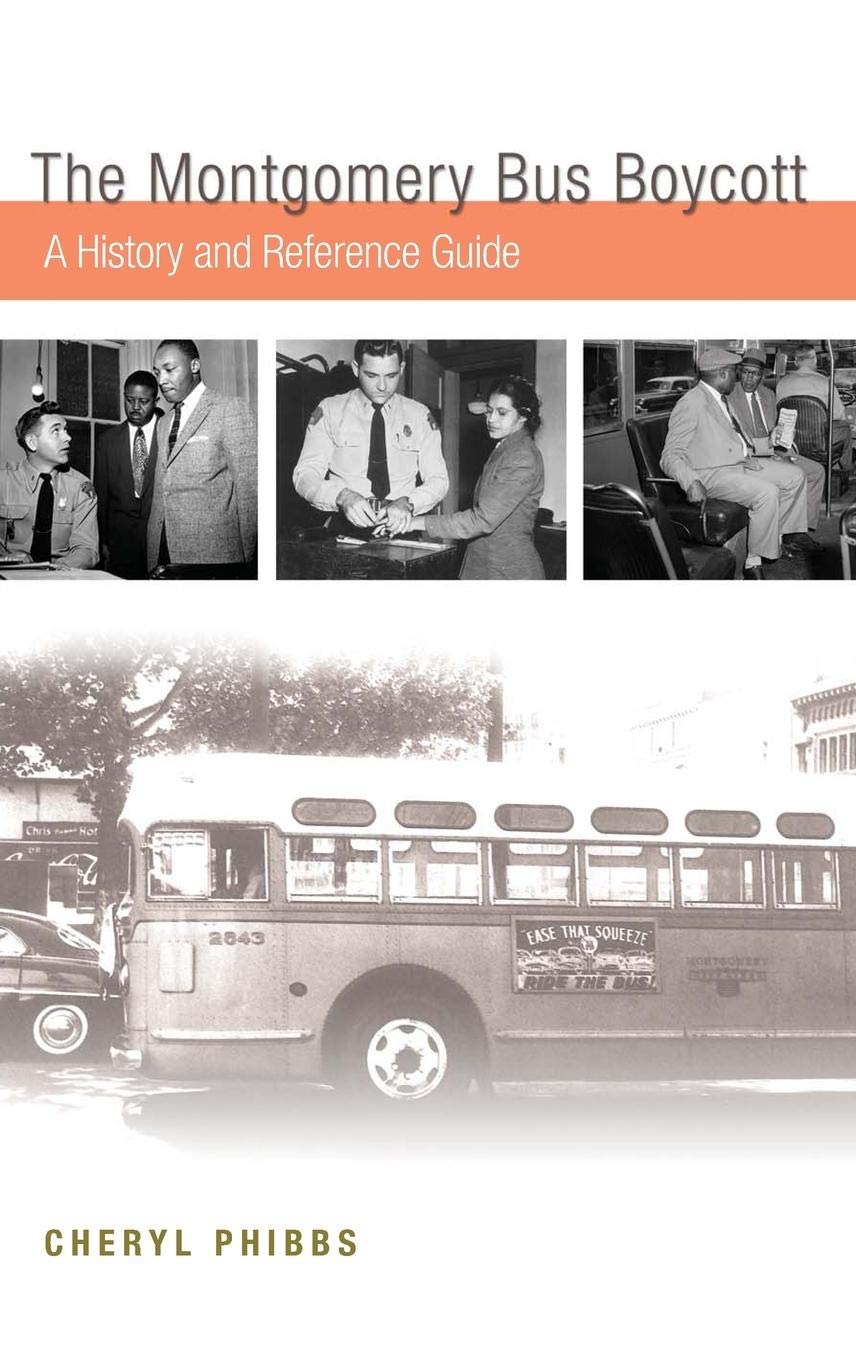

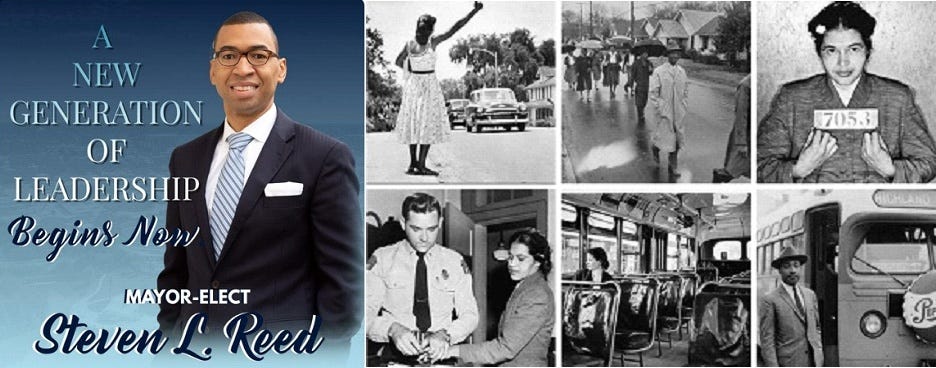

0 Response to "39 montgomery bus boycott"
Post a Comment